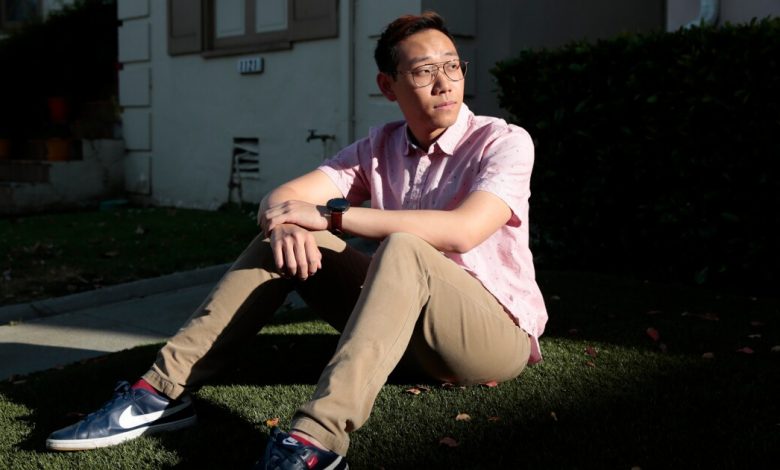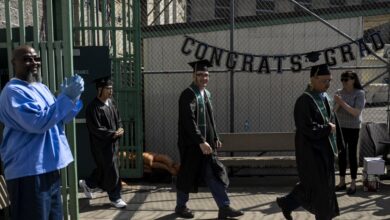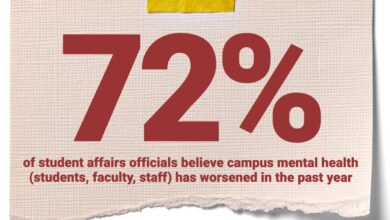A Passport to Work

But when his new employer sent over the offer letter, there was no mention anywhere in the paperwork about his student-visa status, said Tan, who is from Singapore. International students are allowed to work or do internships in the United States only under narrow conditions, when the work is related to their studies, and Tan said he had disclosed his visa status to recruiters during interviews. So he raised the issue with the airline.
Two days later, his job offer was rescinded. “I never should have sent that email,” Tan said.
For international students, as for their American classmates, getting hands-on experience in the workplace is an important part of a college education. A 2017 survey by World Education Services, a nonprofit international-education research company, found that three-quarters of respondents said that gaining American work experience was very important in their decision to study here.
Tan’s incident, however, underscores the challenges international students can face.
Navigating the pathway from college to career is tricky for all students, but those from overseas must maneuver along one that is more tightly bounded by legal restrictions. One wrong step and they could jeopardize their right to stay in America. And many employers — like the airline that hired, then unhired Tan — may not want to deal with the paperwork and responsibility of an international student or recent graduate.
Students can, of course, opt to start their careers back in their home countries, but that can present a different set of hurdles. By studying in the United States, they may have lost out on years of building strong professional networks at home.
Just as international students may find pep rallies, group projects, and other parts of the American college experience foreign, they may be unfamiliar with our approach to career education and advising. In the American system, it’s often up to students to seek out career guidance, and that dynamic disadvantages those who don’t know the ropes.
And while more colleges have invested in programming to help orient and integrate international students in recent years, many campuses have been slower to focus on career services tailored to their particular needs. They may lack staff members with the expertise to help students understand the complexities of visas and global job markets or to advocate for them with employers.
The relative lack of attention on helping international graduates make the successful transition to the workplace could, at the very least, be a missed opportunity for American colleges vying for top foreign students in an increasingly competitive global market. It also could be a serious vulnerability.
In January, Interstride, a company that provides international-student support, surveyed more than 1,000 students about their experience studying in the United States. More than eight in 10 said they’d recommend going to college in America. But asked if, from a career perspective, the value of an American education justifies the cost, the students were more circumspect: Just half said it did.
“When you get into careers, the picture becomes cloudier,” said Anna Esaki-Smith, a global higher-ed consultant who analyzed the Interstride findings. “If it were easier for students to see their careers in the U.S., it would be a huge upside for American colleges.”
The federal government is responsible for setting visa rules, and the United States makes it more difficult for international students to work while they are studying and to stay here for a job after graduation than do other major destination countries like Australia, Britain, and Canada.
While some companies value the skills international students bring to the table, other employers may be resistant to hiring them. They may not want to deal with what they see as meddlesome government bureaucracy or may feel political pressure to hire locally. It can also be difficult to secure long-term work visas, and companies may not want to invest in employees who cannot stay.
In a 2016 paper published in the Journal of International Students and based on a survey done by the National Career Development Association, a professional association, more than half of employers said that lack of knowledge about work authorization was a major obstacle to hiring international students and that they viewed the process as too complicated. Yet just one in five said they wanted more information.

Ramin Rahimian for The Chronicle
Figuring out when and how in the visa process to disclose their status can be a minefield for international students. Ivette Mekdessi, assistant director of career development at Rice University, said some frontline recruiters will say they do not hire international students even when their employer has a history of doing so. It may make sense to wait to discuss visa status until further along in the hiring process, when managers have gotten to know and become more invested in an applicant.
It’s just one way that student-visa requirements complicate career advising for international students. But colleges are not always equipped to give them guidance — in the Journal of International Students research, two-thirds of career advisers reported a lack of knowledge about work-authorization rules for international students.
One of the biggest hurdles for international students is the requirement that off-campus work be tied to their academic studies.
Some colleges have made it a priority to find on-campus employment opportunities for international students, to give them exposure to a workplace. During her time at California State University-Monterey Bay, Giovana Roskosz Reis, a recent graduate from Brazil, had a number of campus jobs related to her major in cinematic arts and technology, including working as a video technician for the student union and producing marketing videos for the international office.
When Branden Grimmett came to Loyola Marymount University, in Los Angeles, in 2015, one of his efforts as associate provost for career and professional development was to get an internship course approved in each college. Now international students can enroll in a course tied to their discipline and earn credit for their internship. “It’s an equity issue,” Grimmett said.
International students also don’t have the luxury of being unemployed after graduation while they figure out their next steps. They are permitted to work for a year in the United States after graduation as part of a program called Optional Practical Training, or OPT, and graduates in science and technology fields can work up to three years. But they either must start working within a short window, leave the country, or go back to school. “OPT is like a ticking time clock for them,” Grimmett said. “That can create stress.”
The rules about work can affect international students’ approach to career preparation. Career educators often encourage students to use their time in college for career exploration. But the requirement that any work be tied to international students’ studies can tether them to a major they chose at the beginning of college, said Elif Balin, an assistant professor of counseling at San Francisco State University and one of the authors of the Journal of International Students study.
“The rules set an agenda for their career planning and can really limit them,” Balin said. “It takes away the exploration.”
College career counselors may feel even less equipped to advise international students seeking to return to their home countries or to work in a third country overseas. Although international students disproportionately come from a few countries like China and India, it can be difficult for advisers based here to fully understand the nuances of workplace culture or have strong industry connections half a world away.
Some international students may have solid networks of their own at home, but Balin said it’s a mistake to assume that all international students are privileged. Studying and gaining work experience in the United States can build up their professional ties here, while those at home can atrophy because of time and distance.
American experience doesn’t always transfer back home. In more-regulated countries or industries, an American degree may not meet local certification standards. And Balin said that some students may find their professional choices limited by personal reasons. For instance, students’ sexual orientation or gender identity could be a workplace issue in more-conservative societies. She herself came to the United States as an international student from Turkey, but she cannot find work at Turkish universities because of her pro-democracy stances.
Some simply see more opportunity in the United States. Reis, the Cal State film student, has an internship at the Monterey Bay Aquarium. Although she struggled with homesickness when she first came to the United States, she hopes an employer might eventually sponsor her for permanent residency. “The thought of having to go back to Brazil and restart was really scary,” she said.
The hiring process and expectations of what makes a good job candidate may also be lost in translation for international students. In their home countries, hiring may be done based solely on personal connections — or applicants may be hired based on their résumé alone.
Many international students are unprepared for the emphasis in the United States on selling yourself as a job candidate. Career counselors may have to work with international students on self-presentation and assertiveness. “Talking about yourself is very normalized in the U.S.,” Mekdessi, of Rice, said, “and in other places, it’s shunned.” Students from countries with a strong emphasis on seniority or respect for elders may feel uncomfortable with American-style networking, viewing it as rude or presumptuous.
Career advisers, too, may not fully understand the cultural nuances of the job search. Some students may be used to making decisions, including those about study and work, more collaboratively, with parents weighing in on their children’s choices even when they become adults. Understanding that they are part of a broader circle making a decision can help shape a counselor’s approach, said Jon Schlesinger, director of Brandeis University’s undergraduate career center.
Yue Li, an assistant professor of psychology at Roosevelt University, in Chicago, cautions against being overly simplistic in viewing international students and their career needs. Many influences — family, culture, race, professional expectations, politics, and government policy — can affect their choices. What’s more, the pandemic and the mental-health strain it’s caused international students, many of whom haven’t haven’t seen their families since the outbreak began more than two years ago, can add stress to the job search.
Even a single factor can cut both ways: Li is a former international student from China, and in cultures like her own, children, especially first-born or only children, are often expected to care for their aging parents. But those cultures also place great value on education, and for some families, the opportunity to study and build a career abroad might outweigh filial obligations.
“They are not homogeneous,” Li said of international students. “Their decisions are extremely complicated.”
Still, Li co-wrote a study examining some of the reasons that students from China may have negative experiences with career offices. Among the cultural mismatches, Chinese students were likely to go to the career office for assistance with a specific problem, rather than to explore career paths. It could be helpful for such students to have an early orientation to the career office, Li said, to help them better understand the services offered.
Indeed, students often have unrealistic expectations about their ability to find internships or work in the United States. Forty-six percent of the students surveyed by Interstride said they felt unprepared for the career-exploration process, said Esaki-Smith, a co-founder of Education Rethink, a global higher-education consultancy.
Experts said that it’s important to be upfront with students about the steps they’ll need to take to secure a job and to give them clear access to career information. “Colleges need to be more transparent that, yes, there are opportunities, but they aren’t guaranteed,” said Balin, the San Francisco State professor. “You can’t sell it as if a job is part of a package that comes automatically.”
Some colleges include career-education presentations in international-student orientation. Grimmett of Loyola Marymount has traveled internationally with the admissions team. During a pre-pandemic trip to India, he was struck by the number of questions from students and parents focused on their path after college. (Loyola Marymount has an unusual structure, with Grimmett’s office reporting jointly to the provost and vice provost for enrollment management.)
“If we want to make sure our international enrollments remain high,” he said, “we have to address careers.”
An increasing number of colleges have hired or designated a staff member specifically focused on career services for international students.
Emi Bague began as Emerson College’s first assistant director of international-student career services in fall of 2019. Starting work just before the pandemic ended up having a silver lining because it allowed her to more easily organize panels of international alumni. One of her goals is to use those connections to begin to develop employer databases for different countries.
At Brandeis, where 20 percent of the undergraduate student body is international, the career center has had an international adviser since 2016, giving students, employers, and even other offices on campus a point person for their questions and needs, Schlesinger said.
Brandeis was able to hire a former international student and Mandarin speaker to fill the role. Having someone who understood students’ challenges firsthand built a lot of credibility with the international-student body, many of whom are from China, Schlesinger said.
Li, the Roosevelt professor, said it could be helpful to have specialists with a specific cultural background. But what’s most important is they take time to build a genuine relationship with students to understand their needs. “It’s simple,” she said, “but it’s not easy.”
College career offices are also working to build cross-campus partnerships to better serve international students. At the University of Southern California, Ariadne Cheng, the newly hired associate director of international-student career engagement, plans to hold regular office hours in the international office to take her services to where the students are, rather than waiting for them to come to the career center.
Career-office staff members may work more closely with alumni and development offices and with departments or schools with large international enrollments. A few colleges even have offices based in countries like China that have, among their responsibilities, career advising and local employer outreach.
The National Career Development Association has an active International Student Services Committee that can serve as a source for information and best practices, particularly for small career offices or those just getting started in advising international students. The committee publishes a resource guide, hosts a YouTube channel and LinkedIn group, and holds a mini-conference and webinars.
Arame Mbodj, interim associate director of career catalysts at Stanford University, who co-chairs the NCDA committee with Mekdessi, said counselors should help international students learn to highlight the distinct assets they bring to the job market. In a workplace that is increasingly globalized, they have experience with different cultures. They typically speak two or more languages. And their experience traveling to another country for their college education highlights their adaptability and independence.
“We also have to talk about them from a strengths perspective,” Mbodj said.
He did land an internship this summer with Deloitte, the professional-services company, in its San Francisco office. Even before he was offered a job, Tan said managers there made clear they saw the diversity he brought as an international student as an asset.
Tan found the position, in part, through Handshake, a job and networking site for college students. It has a function that allows employers to indicate if they are willing to sponsor a visa for the “right” job candidate — in other words, if the position is open to international students or recent grads. (Applicants can also disclose their visa status or need for sponsorship.)
About a fifth of employers on the site have checked the work-authorization box for at least one position, said Randy Tarnowski, Handshake’s senior researcher. In the past year, there has been a 2.4 percentage-point increase in the number of full-time jobs that don’t require work authorization. In percentage terms, it doesn’t seem like such a large increase, said Tarnowski, but that’s because the growth is obscured by a surge in overall job listings on the site. In raw numbers, it’s large.
It’s early to tell what’s going on, but one possible explanation is that in the hot job market, employers want to reach as many potential applicants as possible, and that includes international students, Tarnowski said. Particularly in certain fields such as automotive and renewable-energy industries that produce large numbers of international graduates, employers are “really limiting themselves if they’re not at least considering international students.”
Source link






